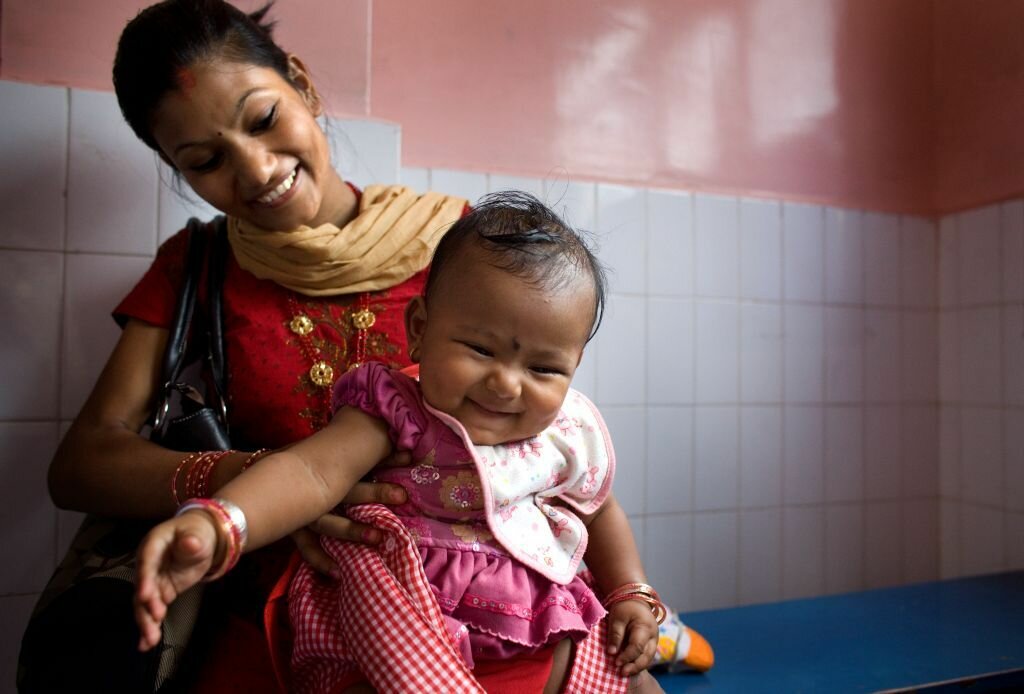MLI in Dakar - Tracking the issues

This week, leaders from government, civil society, and development partners will gather in Dakar, Senegal for the 2011 International Conference on Family Planning. The week-long meeting will cover a diverse range of topics from strengthening health systems to economic policies to environmental sustainability, truly expressing the wide reaching impact of family planning. While at the conference, MLI is co-sponsoring a high-level meeting on the demographic dividend, and will also be exploring many topics relevant in our five MLI countries including:
Family planning policy and advocacy:
Family planning can often be pushed to the back burner inside Ministries of Health. Advocates within the government are necessary to advance the family planning agenda and foster support for policies to make family planning more accessible. Dr. Bocar Daff, head of the Reproductive Health Division in Senegal and MLI partner, has been a catalyst behind his country’s push to expand family planning. With his team, Dr. Daff has been elevating the dialogue around reproductive health and family planning within the government while engaging partners to strategically address policy issues. Dr. Daff will be sharing his experience at the conference in a presentation titled, “Advocacy Inside Ministries: How Ministerial Leaders can Advance Reproductive Health and Family Planning Policy.” Dr. Daff is also participating in the panel presentation “Advocacy for Reproductive Health for the Urban Poor: Approaches in Africa and Asia.”
Other panels encompassing policy and advocacy are: “Investigating Policy -- Relevant Outcomes/Effects of Reproductive Health and Family Planning” and “Advocacy and Supply of Family Planning Resources.”
Adolescent Sexual and Reproductive Health
Pregnancy and childbirth complications are the leading causes of death for girls ages 15 to 19 in developing countries. Teenage pregnancies also affect the children born. A child born to a mother younger than 20 years old has a 50% higher risk of dying before their first birthday. Such startling statistics make adolescent sexual and reproductive health a vital problem to address in many countries. This past summer, MLI co-sponsored adolescent sexual and reproductive health workshops with UNFPA in Nepal and Sierra Leone at the countries’ request. Both MLI countries consider this issue a top health priority
At this week’s conference, numerous panels and presentations will address adolescent sexual and reproductive health including the following sessions: “Early Marriage and Family Planning,” “Adolescent Sexual and Reproductive Health in West Africa,” and “Contraceptive Needs Among Adolescents.”
Demographic Dividend
A declining fertility rate combined with a population bulge of workforce-age citizens can not only boost a country’s economy, it can spark progress in a country’s overall development. However, without investments in family planning, the demographic dividend is difficult to achieve. MLI is co-sponsoring a high-level one day meeting between Ministers of Health and Ministers of Finance on Wednesday during the conference. “Realizing the Demographic Dividend to Accelerate Economic Growth” will include four panels: Advancing Economic and Social Development with the Demographic Dividend, Realizing Health and Wealth: Investing in Adolescents and Youth, Maximizing the Demographic Dividend—Now and in the Future, and Looking Ahead—Country and Donor Perspectives.
Millennium Development Goals
Women’s access to family planning is often considered a prerequisite to achieving the majority, if not all, of the Millennium Development Goals (MDGs). Its affect is not limited to the obvious goals of gender equality (MDG3), child health (MDG4), maternal health (MDG5), and combatting HIV/AIDS (MDG6). Family planning can help end poverty and hunger (MDG1) by reducing economic and material demands, help achieve universal education (MDG2) by reducing the number of girls who drop out due to unintended pregnancy, reduce human impact on natural resources to help ensure environmental sustainability (MDG7), and facilitate global partnerships (MDG8).
MLI will be tracking all of these issues at the International Conference for Family Planning as each of MLI’s five focal countries continue to strive to meet the Millennium Development Goals. Relevant sessions include: “Addressing Human Resources for Health Barriers to Achieving MDG 5B,” “Family Planning and Gender Issues,” “Contraceptive Use and the Poor,” “Household, Poverty, and Family Planning,” “Reaching Out as Rio: Explaining Population Growth and Family Planning to Environmentalists,” and “Enabling Africa’s Highest Fertility Countries to Develop.”
Be sure to check Leading Global Health blog throughout the week for up-to-date blogs with the latest on these topics, news from the conference, and more.
Photo credit Dominic Chavez
Keyword Search
MLI works with ministries of health to advance country ownership and leadership. This blog covers issues affecting the ministries and the people they serve.
Connect with Us
![]()
![]()
Categories
Blogs We Like
- Africa Can End Poverty
- Africa Governance Initiative
- Behind the Numbers
- CapacityPlus
- Center for Global Health R&D Policy Assessment
- Center for Global Development: Global Health Policy
- Center for Health Market Innovations
- Global Health
- Global Health Hub
- Global Health Impact
- The New Security Beat
- PAI Blog
- RH Reality Check
- Save the Children
- Transparency and Accountability Program
Contact Us
Please direct all inquiries to
